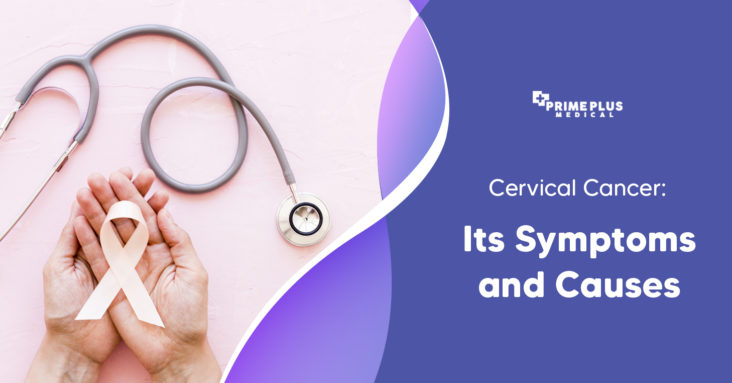According to WHO in 2018, cervical cancer sits as the fourth deadly type of cancer that claims the lives of women all over the world and second in developing countries. Today, Prime Plus Medical Clinic in Bali will discuss regarding the causes of cervical cancer, the symptoms, and the preventive measures.
What is cervical cancer?
Cervix secretes uterine mucus that serves as a natural protection for the body against outside bacteria and helps the journey of sperm cells in finding eggs to fertilize in the ovum. Moreover, it is also an important reproduction organ that functions at the birth canal for the baby. Cervical cancer occurs from the massive growth of abnormal cells in the lower part of the uterus that channels the vagina. DNA mutations in cervical cells result in a malignant tumor, if not treated, it continuously develops into cancer. Cancer cells can severely affect vital organs such as the lungs after they attack nearby tissues.
What happens when you go through symptoms of cervical cancer?
Women might not realize that they are contracting cervical cancer at an early stage. This is because there are rarely any signs that might provoke the awareness. Therefore, it is always wise for women who are sexually active to receive routine cervical cancer screening and HPV vaccine before being sexually active.
Find your trusted medical clinic in Bali with Prime Plus Medical, see our services here
In the advanced stage, however, several cervical cancer symptoms that women experience include constant vaginal bleeding and heavy discharge with an unpleasant odor. During intercourse, they may suffer from pelvic pain as well.
Causes of cervical cancer
80% of the disease derives from the infection of Human Papillomavirus (HPV) in unhealthy male seminal fluid with a history of intercourses with multiple sex partners. As HPV releases two dangerous proteins E6 and E7, they aggressively trigger the abnormal cell growth in the uterus and inactivate tumor-protective genes. The phenomenon causes gene mutations and ultimately results in cervical cancer.
Other cervical cancer causes also relate to smoking habits, weak immune systems, and early pregnancy before the recommended ages.
How smoking contributes to one of the causes of cervical cancer
Women with smoking habits have twice the chance of getting cervical cancer as those who don’t. Harmful chemical exposure from cigarettes is not only hazardous to the lungs but the chemical reaction in the body can mean harm to the DNA of cervical cells. It makes the immune system ineffective against HPV infection. Therefore, it worsens the risk of one catching the virus infiltrate the cervix.
Weak immune system due to certain conditions increases the risk in women
The immune system has a significant role to slow down deterioration from the infection of bacteria and viruses by fighting against the foreign cells that may be harmful to the human body. People with HIV/AIDS, autoimmune disease, and those who just went through an organ transplant are not advisable to involve in having intercourses because of their weak immune systems. They are becoming more prone to spread the disease to others and develop cervical cancer rapidly.
Early pregnancy in women below 20 years old and past family records
Women younger than the age of 20 when they first had their pregnancy are more likely to develop cervical cancer than those who wait until they are 25 years old or older. As cited by the American Cancer Society, there is a familial tendency that once the disease runs in the bloodline, your female relatives might have a greater chance of getting cervical cancer. Although the condition might be inherited, further studies have to be conducted to test out the suspicion.
Practice cervical cancer prevention
Lower your risk of cervical cancer by including these practices:
- The HPV vaccine is recommended as early as possible from the age of 9 until 26 years old. Ideally, two doses of vaccine should be taken by women and men before they are exposed to sexual intercourse and HPV. Talk to your doctor about whether having a jab of the HPV vaccine will be appropriate for your case.
- You need to monitor your cervix condition regularly at the age of 21 by Pap tests and then continue doing it in the next few years and on. Early measures of Pap test allow you to detect cancer cells and treat them immediately.
- Use condoms and always observe safe sex practices to prevent cervical cancer. Also, try not to have sex with multiple partners.
- Be mindful of your smoking habit and find a way to stop it. It is easy for one to be addicted to smoking. It triggers adverse health issues that will endanger smokers. Might as well not attempt to start it.
Prime Plus Medical Clinic in Bali Offers STD Screenings and Treatments
Our STD clinic in Bali provides comprehensive STD Screenings & HPV Vaccination for Men & Women. We accept both walk-in & appointments. For more information, please contact us at +623614740055 or +6281237387131.

